 Creepy
Creepy  Creepy
Creepy  Movies and TV
Movies and TV 10 Movies That Get Elite Jobs Right, According to Experts
 Weird Stuff
Weird Stuff 10 Times Real Laws Were Based on Bizarre Hypotheticals
 Animals
Animals 10 Inspiring Tales of Horses Being Human
 Mysteries
Mysteries Top 10 Haunting Facts About the Ghost Ship MV Alta
 History
History 10 Surprising Stories About the Texas Rangers
 Humans
Humans 10 Philosophers Who Were Driven Mad by Their Own Theories
 Miscellaneous
Miscellaneous 10 Video-Game-Worthy Weapons and Armors from History
 Weird Stuff
Weird Stuff 10 Psychics Who Accurately Predicted Wartime Events
 The Arts
The Arts 10 Pieces of Art Inspired by a Broken Heart
 Creepy
Creepy 10 Death Superstitions That Will Give You the Creeps
 Movies and TV
Movies and TV 10 Movies That Get Elite Jobs Right, According to Experts
 Weird Stuff
Weird Stuff 10 Times Real Laws Were Based on Bizarre Hypotheticals
Who's Behind Listverse?

Jamie Frater
Head Editor
Jamie founded Listverse due to an insatiable desire to share fascinating, obscure, and bizarre facts. He has been a guest speaker on numerous national radio and television stations and is a five time published author.
More About Us Animals
Animals 10 Inspiring Tales of Horses Being Human
 Mysteries
Mysteries Top 10 Haunting Facts About the Ghost Ship MV Alta
 History
History 10 Surprising Stories About the Texas Rangers
 Humans
Humans 10 Philosophers Who Were Driven Mad by Their Own Theories
 Miscellaneous
Miscellaneous 10 Video-Game-Worthy Weapons and Armors from History
 Weird Stuff
Weird Stuff 10 Psychics Who Accurately Predicted Wartime Events
 The Arts
The Arts 10 Pieces of Art Inspired by a Broken Heart
Top 10 Debunked Myths About Laundry
Laundry is a part of our normal routines. It is also a focal point for many DIY blogs and advice columns that offer tips and tricks to make the washing of clothes more efficient. However, much of this info has contributed to laundry myths which are spread by Internet blogs and word of mouth.
Today, we’ll bust some of these myths wide open. No, hairspray will not remove your ink stains and lemons won’t make your detergent work better. In fact, some of these misconceptions can cause more trouble than they’re supposedly worth.
Top 10 Times People Have Been Killed By Clothing
10 How Clothes Go Into The Wash Doesn’t Matter
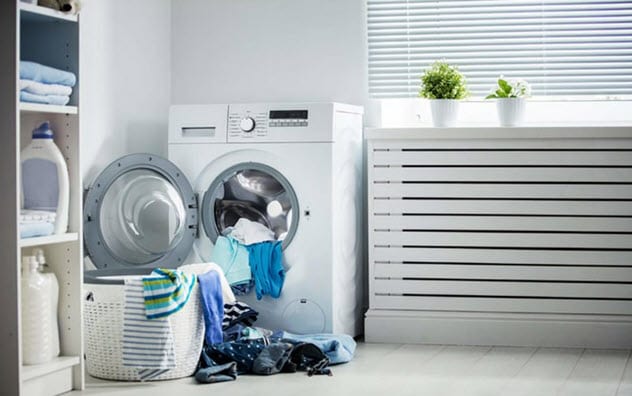
When it comes to washing, it seems simple enough. Take the clothes from the hamper, separate darks and lights, and throw the rest in. However, recent studies have found that turning the clothes inside out actually helps to remove a wider range of germs and stains. This is true even though the washing machine does its job.[1]
The study also found that clothes which are rinsed inside out will retain their comfort level and are better for the health of your skin, especially for those who are prone to breakouts or have sensitive skin.
9 Adding More Detergent Makes Clothes Cleaner
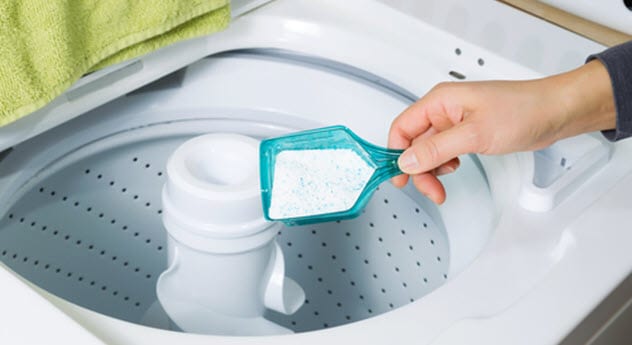
Although it’s a common myth, adding more detergent to your washing machine does not improve its ability to clean your clothes. In fact, throwing in more soap can impact how your washer runs and may not make your clothes as clean as you thought.
As most current washers are calibrated by cycle for a specific amount of detergent, adding more than recommended may cause the detergent to sit inside the clothes because the final rinse cycle is unable to do its job. While it might not seem like a big deal to have detergent stuck in your clothes, the remaining soap can dull your clothing faster. Also, it may lead to skin irritation and cause odors in your washer.[2]
The best option for clean clothes is just to follow the instructions on the detergent.
8 Only A Hot Water Cycle Will Kill Germs
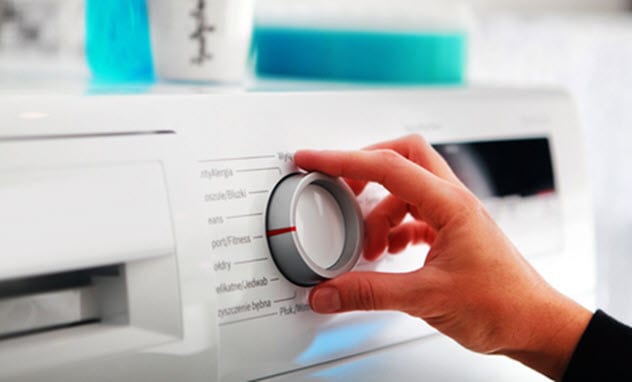
Although hot water has been proven to be effective at eliminating germs, the temperature has to be at least 100 degrees Celsius (212 °F). Unfortunately, most hot water heaters are set at around 49 degrees Celsius (120 °F).
As a result, washing your clothes in hot water isn’t going to give them the deep cleaning you want. However, many washers today are created so that cold water cycles will be just as effective as hot. The cold settings also save energy.
If you are concerned about sanitizing your clothes, some washing machines have a sanitize option. Look for an NSF certification, meaning that the washer will kill up to 99.9 percent of microorganisms during the wash cycle.[3]
It is recommended to check the labels on your clothes to see if they can be placed in the hot cycle.
7 Adding Bleach With Detergent Will Increase Detergent Efficacy
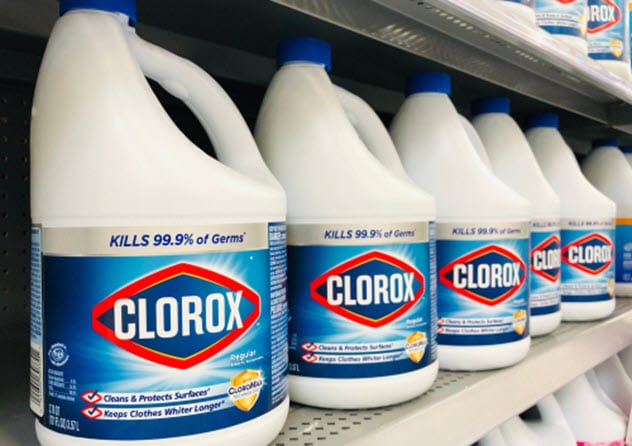
While this is largely a debunked myth, it does contain a bit of truth. Although adding chlorine bleach to a load can sometimes aid in whitening and brightening whites, adding undiluted bleach directly with the detergent can cause the two to cancel each other out. Your clothes will come out of the dryer duller and more likely to be stained.
Adding bleach to a load needs to be done about five minutes after the cycle begins, and the bleach should be diluted in some form to ensure that the detergent can still do its job. Baking soda can also be added with the diluted bleach to help in the stain removal process.[4]
6 Adding Ground Coffee Will Keep Your Black Clothes Dark
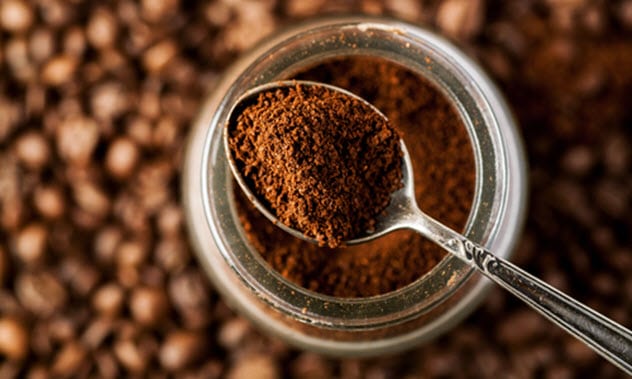
Maintaining the vibrancy and color of dark clothes, especially black ones, is difficult. Black clothes are notorious for becoming dull and faded the more they’re washed.
However, despite the urban myth, ground coffee cannot keep your black clothes dark. In fact, adding ground coffee to your cycle will cause more problems for your washer and your clothes. You’ll probably end up with strange odors and grounds stuck in your washer rather than darker-colored clothes.[5]
To keep your dark clothes dark, wash your dark load in cold water on a gentle or permanent press cycle and don’t forget to turn your clothes inside out before placing them in the washer.
10 Truly Troubling Facts About The Clothing Industry
5 Adding Salt To The Washer Prevents Dye From Bleeding
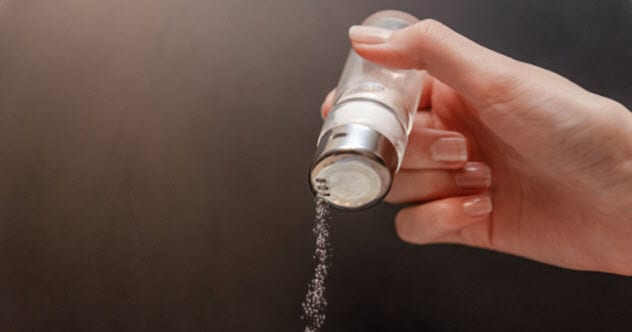
Unfortunately, the dyes in some clothes, such as dark wash jeans, tend to bleed during the first few cycles. To prevent this, one myth claims that the clothes should be soaked in salt first and then more salt should be added during the rinse cycle to preserve the colors.
Adding salt to the washer does not keep the colors in your clothes from bleeding together and can cause some serious damage to your washing machine.[6] To see if an article of clothing may bleed while in the wash, wet a cotton swab and rub it on a corner to see if the dye transfers.
If your clothes are still bleeding after the first few washes, check the label’s instructions to ensure that you’re washing the item properly. You can also use color-catching sheets to trap the dye during the wash cycle so that it won’t bleed into any other clothes.
4 Adding Aspirin Can Whiten Your Clothes
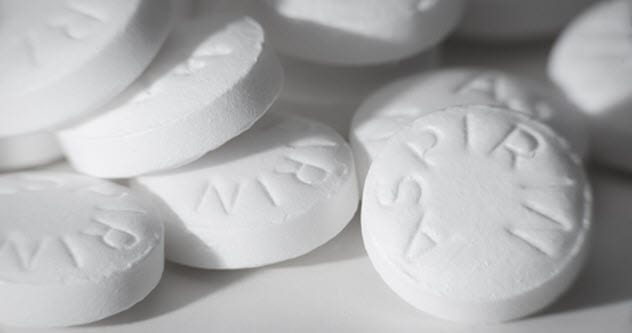
A myth circulating in blogs for a short time was that you could whiten your whites and remove stains with aspirin. Simply dissolve four to five aspirin tablets in the hot water used to soak your clothing. Then wash the items in a hot cycle to brighten them.
Unfortunately, it doesn’t work.
However, this myth may have spread because soaking whites in hot water does allow some dirt to lift off during the soaking process. This causes the clothes to appear whiter than they originally were and makes it easier to get stains out.[7]
3 Washers Don’t Need To Be Cleaned
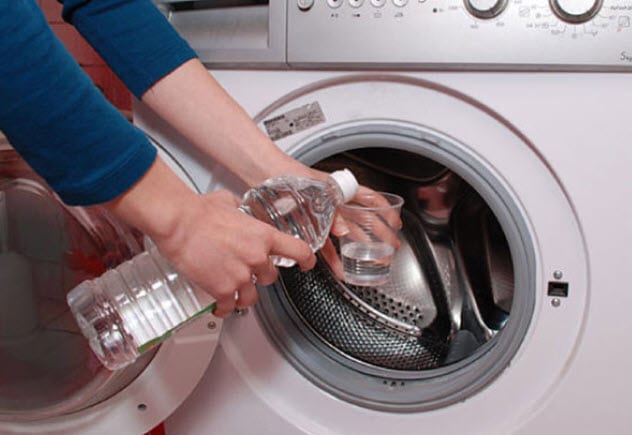
Although washers are excellent for doing your laundry, they can retain some of the dirt, bacteria, and detergent from washing. As a result, odors, mildew, and even Salmonella can grow in your machine.
Keeping your washer clean is important and can be done in a few ways. Newer machines might have a self-cleaning cycle. Otherwise, you can add distilled white vinegar to a hot cycle to help clean the inside of the washer and clear out any lingering bacteria.[8]
If you use your washer often, it is recommended that you clean it every four to six weeks.
2 Freeze Your Jeans To Kill Bacteria
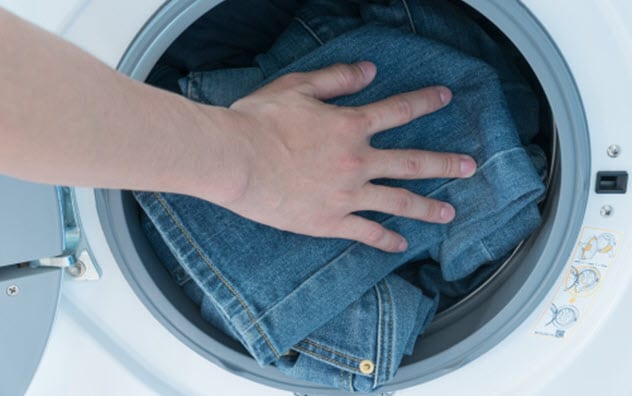
There are a lot of laundry misconceptions about jeans, including that wearing them in the bathtub first will ensure that they’ll retain their fit after washing. As discussed above, washing clothes in hot cycles doesn’t help to eliminate any more germs than cold cycles. Neither does freezing your jeans.
Despite what the myth says, freezing your jeans is not a viable alternative to washing them. Freezing the fabric may get rid of some weaker bacteria, but it won’t eliminate all germs. When you put your jeans into the freezer, you’re simply adding the bacteria on those jeans to your freezer.[9]
Health experts at Cleveland Clinic recommend that you wash your jeans after two or three wearings. Of course, if the fabric is visibly dirty or you’ve been sweating heavily, wash them right away.
1 You Can Get STDs From Using Public Washing Machines

There are many fears when it comes to using public washing machines, including that they spread STDs. While bacteria such as E. coli and Salmonella can remain after a washing cycle, there is no evidence that STDs can be passed through washing machines.[10]
In most cases, STDs cannot exist long outside the body. Usually, they need to be passed through contact, making it nearly impossible for them to be transmitted through a shared washing machine.
10 Fascinating Ways The Nazis Influenced Fashion








